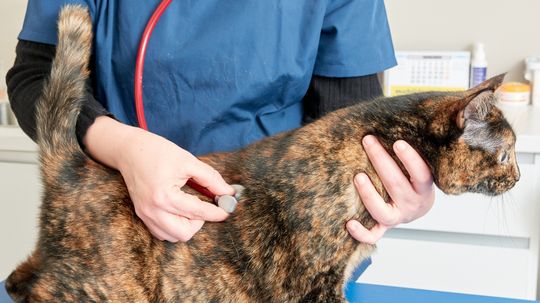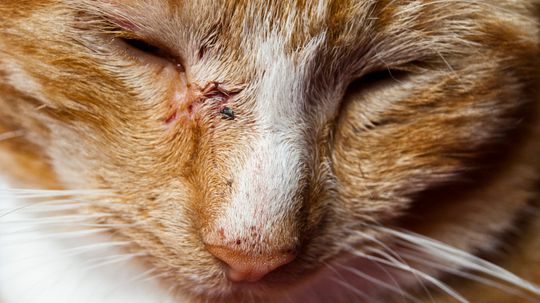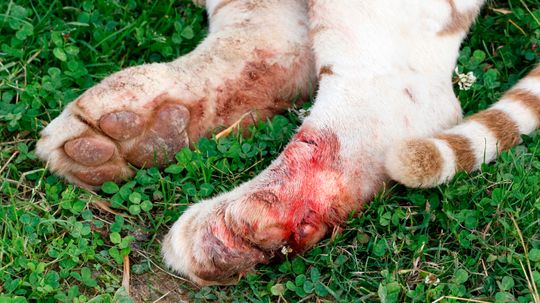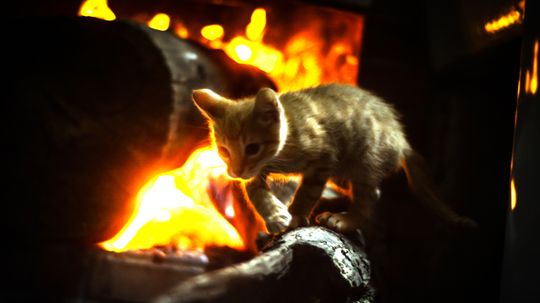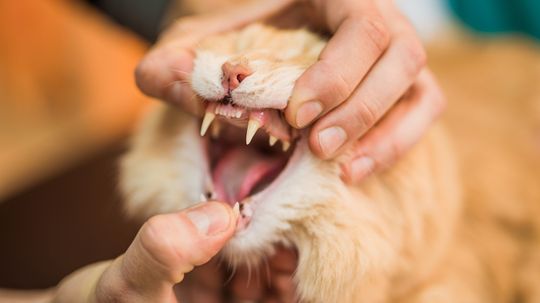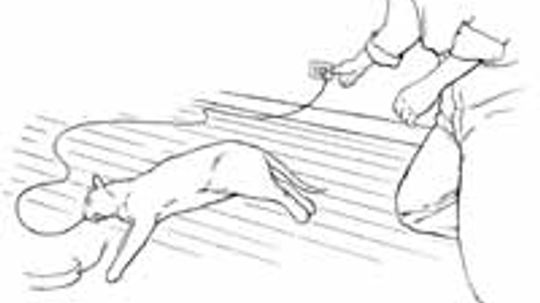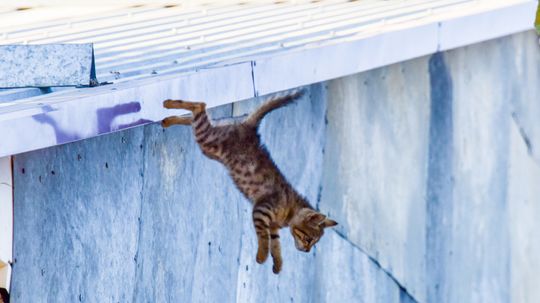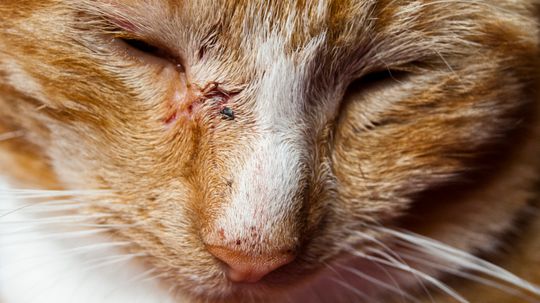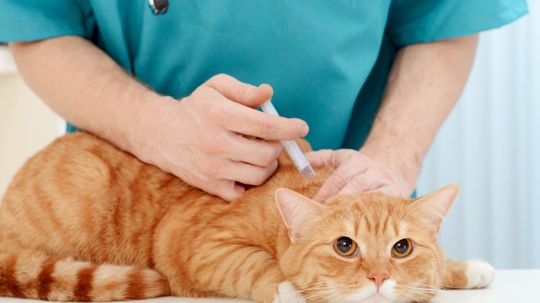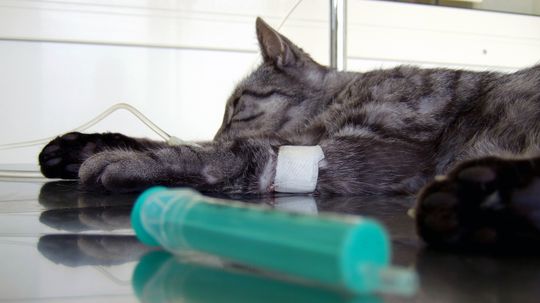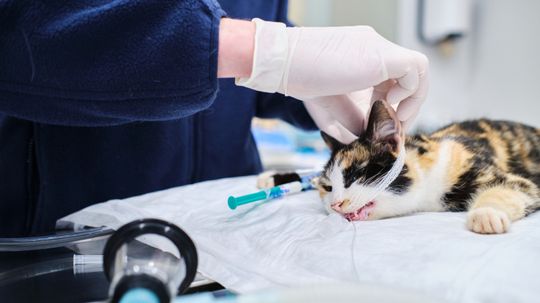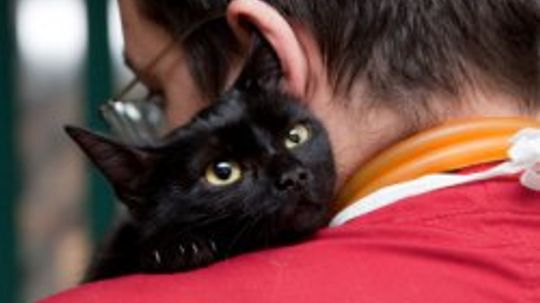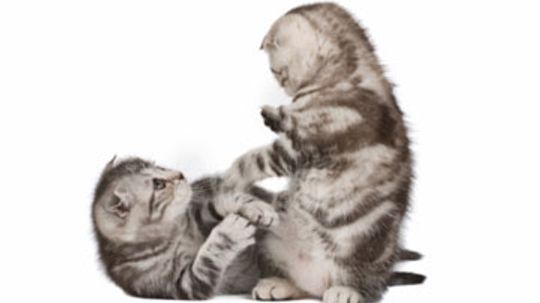Cat Injury Treatments
No one wants to imagine their pet hurt, but learning about cat injury treatments can help you feel prepared. Check out information on cat injury treatments.

How to Administer Oral Medication to a Cat

How to Approach an Injured Cat
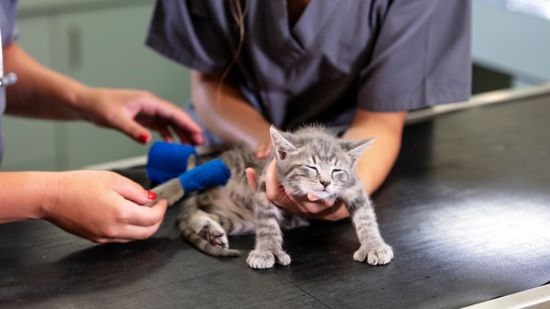
How to Restrain an Injured Cat

Where Did Cats Originate From? How Cats Came to Tolerate Humans
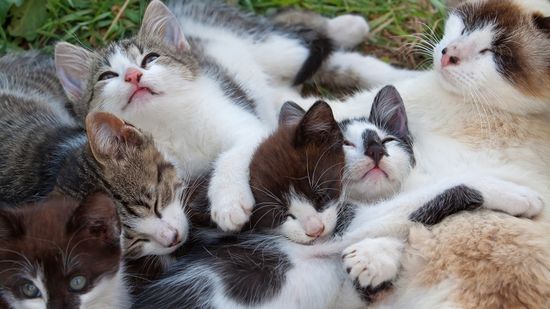
What Is a Group of Cats Called? A Clowder, a Glaring, a Kindle?

6 Facts About Ginger Cats (Plus 2 Bonus Tidbits)

Are Christmas Trees Toxic to Cats? What About Tree Water?
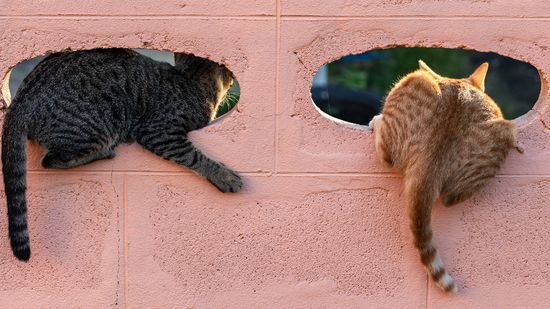
Why Do Cats Put Their Butt in Your Face?

Why Does My Cat Bite Me When I Pet Her?
Learn More
Dealing with a cat with an abscess can be difficult since it's not always clear what's wrong. Symptoms to watch for include a foul-smelling discharge and lethargy. Learn how to initially treat a cat with an abscess.
When cats interact with other animals, sometimes they are bitten. If your cat suffers an animal bite, tend to the wound right away for proper cat care. Learn to treat your cat's animal bite.
When your cat is bleeding, there are steps to take to provide excellent cat care. How you care for the bleeding depends on its location. Learn about how to stop your cat from bleeding.
Advertisement
In cat care, you never know when you might have to deal with a broken leg. Broken cat legs are tricky to diagnose. Learn how to identify and treat a cat with a broken leg.
Cats can be curious creatures, so knowing how to treat burns is an important part of cat care. It's important to know the warning signs. Learn how to treat a cat that is burned.
Choking is life threatening for your cat. The harder the cat tries to breathe, the more panicky he or she can become. Learn the warning signs and how to save a choking cat.
Knowing how to help a cat who is experiencing a convulsion or seizure is an important part of cat care. The cat needs your protection from self-injury. Learn how to treat a cat's convulsions/seizures.
Advertisement
Grown cats are seldom victims of electrical shock, but kittens are naturally curious and will chew almost anything, including electric cords. Learn how to treat a cat suffering from electrical shock.
Cats often fall down and normally land on their paws. However, sometimes more serious injuries do occur, and one possibility is a broken back. Learn to treat a cat that has a broken back.
Cats are naturally curious and get into many places in the household. This means their chances of receiving a scratched eye or eye irritation are high. Learn to treat a cat with a scratched eye.
Cats love to perch on windowsills. Unfortunately, cats sometimes fall down. An important part of cat care is knowing how to treat a cat in this situation. Learn to treat a cat that has fallen.
Advertisement
Cats like the taste of fish, so they seem like a logical pair. But cats and fishhooks are a dangerous combination. Learn what to do when a fishhook is embedded in your cat.
When a cat is exposed to freezing temperatures for a long period of time, there is always the possibility of frostbite. Learn how to help a cat exposed to this serious condition.
Cats love to frolic outdoors, but sometimes nature can take its toll in the form of an insect sting. Learn more about what to do when a cat has been stung by an insect.
Cats are curious creatures, which can lead to accidental poisonings. It is your responsibility as a pet owner to keep all potentially toxic products out of reach. Learn to treat a poisoned cat.
Advertisement
Smoke and carbon monoxide inhalation are life-threatening situations for cats. It's important to know what to do if your cat is conscious or unconscious after both inhalation emergencies. Learn how to help your cat.
Cats need to be careful of contact with toads. The poison in a toad's saliva causes severe symptoms within minutes. Learn what to do when a cat is suffering from toad poisoning.
Shock is an extremely serious and life-threatening condition for a cat. Shock is a reaction to heavy internal or external bleeding. Learn what to do when a cat is suffering from shock.
Cats are very playful in the outdoors. Unfortunately, skunks are one of the major carriers of rabies in North America. Learn what to do when a cat has been sprayed by a skunk.
Advertisement
When cats travel outdoors, they can run into snakes. Most snakes are nonpoisonous, but their bite still can be harmful to your cat. Learn what to do when a cat has suffered a snakebite.
If the cat is unconscious, it is important to check the vital signs. Is it breathing? Is the heart beating? How a cat owner responds immediately makes a difference. Learn to treat an unconscious cat.
You'd to learn how to give your cat CPR in case of an emergency. Read here how to give your cat CPR.
What are some ways to patch up your scrappy kitties? Gets some tips for dealing with injuries large and small in this article.
By Shanna Freeman & Dr. H. Ellen Whiteley
